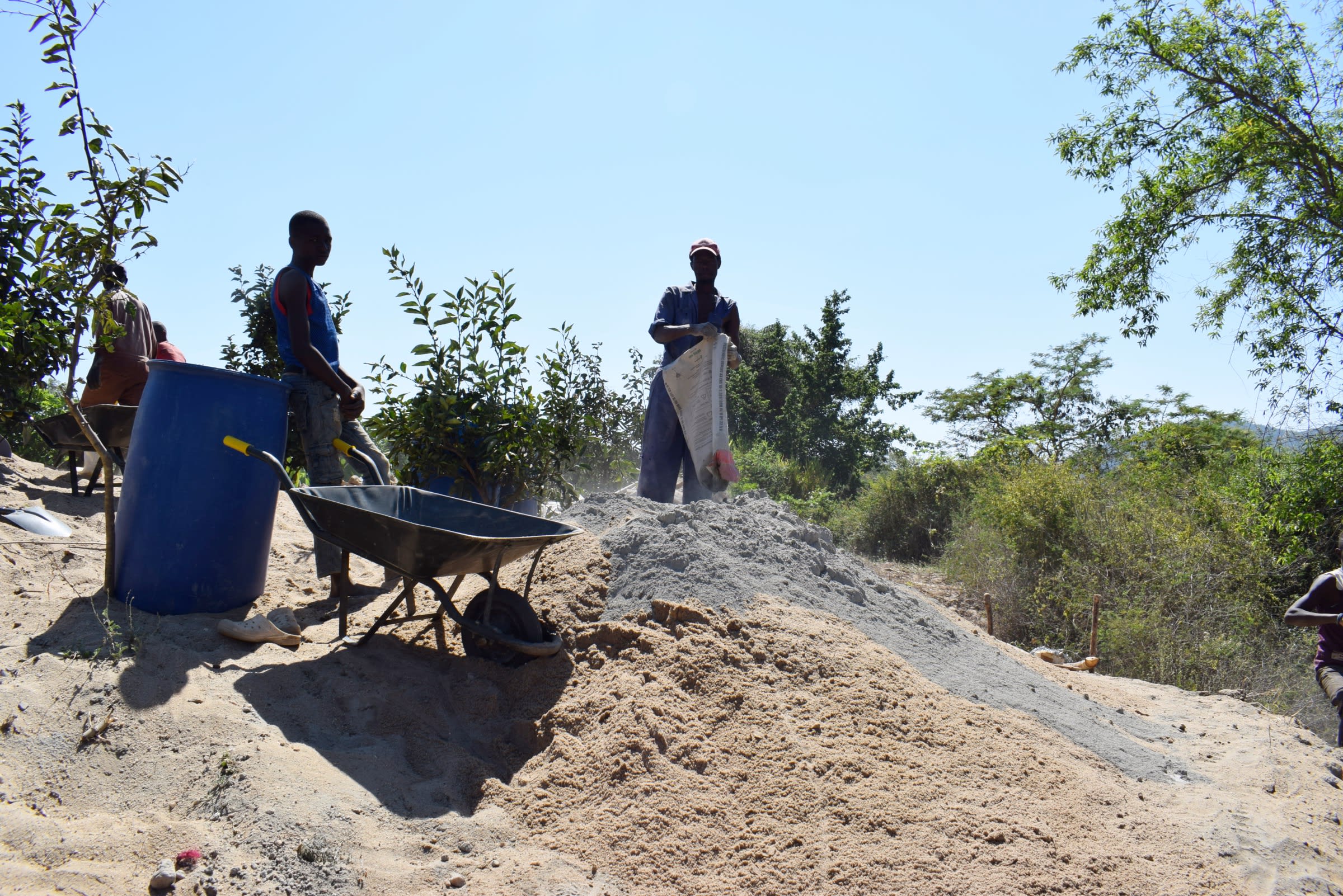Yumbani village is a calm, peaceful, and rural area in Makueni County, Kenya. The topography of the area is hilly as the village lies between the Makuli and Nzaui hills. The roads are very bumpy, rough, and rocky. Houses are sparsely populated with large farms separating the homesteads. Most houses are made of bricks and iron sheet roofing.
An average day for these community members begins at 6:00 am or earlier when women walk to the nearest river to fetch water. Their return depends on the queues and the crowds at the water source that day. Once they get back home, they prepare breakfast for their families and ready their children for school.
The water is fetched from scoop holes along the Mbaloni River. During the dry seasons, the women have to dig very deep scoop holes to attain water. It can be risky because they are big enough that someone could fall inside the hole and get hurt. The roads are also very rough and steep to reach the river. The river sources are always open, exposing the community members to risks of contracting waterborne diseases.
"When there's no water at school and we have to carry from home, we are forced to go to the river first, fetch it, and carry it to school. It's usually very exhausting because we do not have water in the house," said Amos, a teenage student we met during a recent visit.
Our main entry point into Yumbani Community has been the Nduti Self-Help Group, which is comprised of households that are working together to address water and food scarcity in their region. We worked with this group last year to complete a project, but it alone is not enough to solve the water needs for the more than 1,000 people living here. Many people still will use the open river source to get water because it is more convenient for them.
"The water source is usually very overcrowded. Attaining sufficient water for use is always very hard," said Onesmus Munyau, a local farmer.
Reliable Water for Yumbani
Hand-Dug Well
This particular hand-dug well will be built adjacent to a sand dam project, which will supply clean drinking water once it rains. We have supplied the group with the tools needed for excavation. With the guidance of our artisans and mechanics, the excavated well will be cased, sealed with a well pad, and then finished with a new AfriDev pump.
Excavation takes a month or more on average, depending on the nature of the rock beneath. Construction of the well lining and installation of the pump takes 12 days maximum. The well will be lined with a concrete wall including perforations so that once it rains, water will filter in from the sand dam.
This well will be located in Yumbani Village and will bring clean water closer to families.
New Knowledge
These community members currently do their best to practice good hygiene and sanitation, but their severe lack of water has been a big hindrance to reaching their fullest potential.
We will hold hygiene and sanitation training sessions with the Nduti Self-Help Group and other community members to teach about important hygiene practices and daily habits to establish at the personal, household, and community levels. This training will help to ensure that participants have the knowledge they need to make the most out of their new water point as soon as the water is flowing.
One of the most important topics we plan to cover is the handling, storage, and treatment of water. Having a clean water source will be extremely helpful, but it is useless if water gets contaminated by the time it is consumed. We will also emphasize the importance of handwashing.
We and the community strongly believe that all of these components will work together to improve living standards here, which will help to unlock the potential for these community members to live better, healthier lives.
We typically work with self-help groups for 3 to 5 years on multiple water projects. We will conduct follow-up visits and refresher trainings during this period and remain in contact with the group after all of the projects are completed to support their efforts to improve sanitation and hygiene.



 Rehabilitation Project
Rehabilitation Project



































